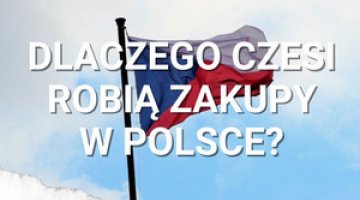Hungary and the Czech Republic's position on the fiscal compact and the strengthening of economic integration
During the European Council summit held on 8 and 9 December Hungary and the Czech Republic displayed scepticism regarding strengthening economic integration within the EU. Their fears stem above all from political and ideological concerns. Prague and Budapest see a closer coordination of budget policies as a step towards a federal system of the EU and a weakening of the national states. Whether Hungary and the Czech Republic are to join the agreement on the coordination of fiscal policies has not been determined; nor has their contribution to the EUR 200 billion loan for the International Monetary Fund (IMF).
The agreement concluded between 17 states of the eurozone includes introducing a commitment into the national legal systems to maintain the structural deficit of public finance below 0.5% of nominal GDP and will have automatic financial sanctions for deviations from fiscal discipline. The states which are signatories of the agreement are also to consider granting a loan of EUR 200 billion to the IMF. All EU countries from outside the eurozone besides the UK signalled the possibility of taking part in such a pact, but Sweden, the Czech Republic and Hungary by expressing scepticism clearly manifested the necessity to hold national consultations. These countries, along with the UK, did not join the Euro Plus pact in March 2011, objecting to economic policy coordination which in their eyes would lead to tax harmonisation. The Hungarian prime minister, Viktor Orban, said that in the face of such a substantial limitation of sovereignty he will wait for parliament's decision and his Czech counterpart Petr Necas deemed that the Czech Republic's final decision on the new pact could be made only when the actual content of the agreement is known.
The context of Hungary's position
The agreement is uncomfortable for Hungary because the Orban government declared it was necessary to bring an end to the “conciliatory” policy towards the EU and the international financial institutions. The government is underlining the demand to maintain full independence in economic policy but on the other hand it has recently returned to talks with the IMF and admitted that the collapse of the eurozone would have dire consequences for the Hungarian economy. The government justifies the necessity of joining the pact also by the fear that otherwise it will find itself in a second speed Europe and Hungary should not be left isolated (alongside the UK) outside decision making processes regarding economic governance in the EU. The coalition has a constitutional majority in parliament and there will be no problem to push Orban's decision through. The left-wing opposition, although it has criticised the government for inconsistency in economic policy, favourably received the summit's agreement. However, the government's position has been criticised by the extreme right-wing opposition which called for a referendum.
The context of the Czech Republic's stance
The Czech European policy and particularly the degree of integration of economic and financial policies are the bone of contention within the coalition between the Civic Democratic Party (ODS) of Prime Minister Necas and the TOP 09 party of foreign minister Karel Schwarzenberg and the populist party Public Affairs. The leaders of ODS, similar to President Vaclav Klaus, do not perceive the vision of the varying speeds integration as a threat to the country. This concept brings Czech conservatives closer to the British Tories who ODS sits with on the European Conservatives and Reformists Group in the European Parliament. While introducing structural reforms and cuts in spending the government of Petr Necas does not oppose the demands of balancing the budget, alert thresholds or automatic sanctions imposed on the countries leading risky budget policies. However, the government remains critical of the issue of extending the European Commission's competences in the area of the budget policy of EU states.
The coalition party TOP 09 is more favourable to strengthening economic integration and claims the Czech Republic should join the pact according to general provisions agreed during the summit. In the opinion of the party’s leaders, if the Czech Republic withdrew from the negotiated agreement it would result in the country's self-imposed isolation in European structures. The finance minister and the vice president of TOP 09 Miroslav Kalousek pointed out however that the Czech Republic should try to negotiate the smallest possible contribution to the loan for the IMF. The Public Affairs party is hesitant about the loan and the party will try to use the controversial topic of financing anti-crisis instruments by the Czech Republic in order to strengthen the party's flagging position in opinion polls.
Prospects
Although in the Czech Republic and Hungary the vision of co-operation with the countries from outside the eurozone, particularly with Sweden and the UK, is popular in right-wing circles, a series of pragmatic arguments call for a conciliatory position on the actions undertaken by the eurozone countries and the Czechs' most important economic partners. Both Hungary and the Czech Republic are significant beneficiaries of EU funding and their economies are closely linked to the eurozone countries – mainly Germany. Furthermore, the essence of the proposed agreement – the improvement of fiscal discipline – is not the subject of any of Prague’s or Budapest's reservations as the two countries are pursuing very restrictive policies in this area. The two countries will justify their efforts made to limit or avoid their contribution to the loan for the IMF by their difficult economic situation (Hungary) and the necessity to fight their own deficits. The agreement of the two countries to the strengthened integration under the new pact will depend above all on the scale of the proposed coordination and on Sweden's position. For Hungary it will be very important to stave off the threat of political marginalisation in the EU.
Mateusz Gniazdowski, Jakub Groszkowski,
co-operation: Tomasz Dąborowski, Andrzej Sadecki





